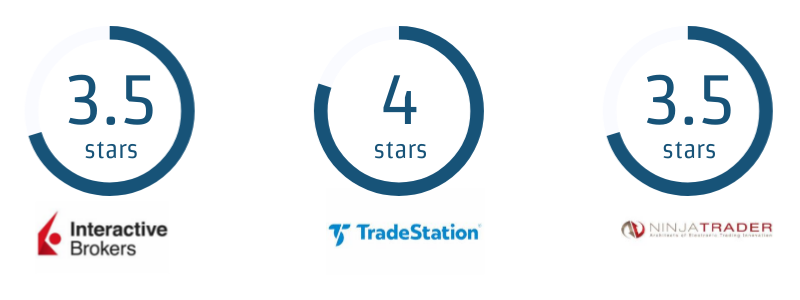
If you want the highest return on your investments, you should invest in defensive stocks. Investing on defensive stocks can protect your portfolio and help to mitigate future market risks. Even though some companies can seem dull or not very interesting, they are still valuable investments. These stocks are in a unique place to weather any market downturn. Fundamental analysis can help you identify the most defensive stocks and reap the benefits. Here are some.
CVS
CVS has a great base as a pharmacy and retail retailer, and it recently completed an ambitious acquisition of health insurance giant Aetna. The company's recent mergers with Aetna has helped it generate $2.3 billion in quarterly profit. GM took a huge hit in the 2008 U.S. automobile bailout, but has now enjoyed great success. In recent years, the company has been able to pay a steady dividend and has reduced its debt.

General Dynamic
General Dynamics is a solid investment option if you are looking for a reliable bet. General Dynamics has a strong track record in capital returns and shareholder value, and the current war in Ukraine is a significant tailwind for this defense contractor. However, at current levels, General Dynamics stocks have limited total-return prospects. The war is creating strong tailwinds for defense and aerospace contractors, which may limit the upside of their stocks in the short term.
Unilever
British multinational firm has proven to be a reliable stock picker when it comes down to defensive stock selection. While the company's recent failed bid for GlaxoSmithKline has signalled a lack of organic growth prospects, it is unlikely to continue declining in the short term. Investors haven't paid much attention to the stock in the past. The stock's recent news has led to a rebound in its price. Unilever, a multinational company in the defense sector, has a low P/E ratio (only 15.6) and a high dividend yield (4.06%).
Pfizer
The key to stability in your portfolio is a dividend. COVID-19 vaccination sales will eventually decrease, but they don’t seem to be an irreversible revenue source. Branded drug firms aren't immune to falling sales of their main product lines. Their market share and patent protection suffer as a result. But, in the long term, the company’s product pipeline will be what determines its stability.

Walmart
When you're looking to invest in the best defensive stocks, you should definitely consider Walmart. This mega-cap bluechip has a solid underlying business model. Even though it has seen its shares rise 0.39% in one year, Walmart remains one of America's best. This is due to the company's expansion and recent launch of a subscription-based service similar in nature to Amazon Prime. Despite its low stock price, the stock has seen growth in revenues, earnings, and margins over recent years.
FAQ
Can bonds be traded?
Yes, they are. You can trade bonds on exchanges like shares. They have been traded on exchanges for many years.
The only difference is that you can not buy a bond directly at an issuer. You will need to go through a broker to purchase them.
It is much easier to buy bonds because there are no intermediaries. This also means that if you want to sell a bond, you must find someone willing to buy it from you.
There are many different types of bonds. Different bonds pay different interest rates.
Some pay quarterly, while others pay interest each year. These differences make it easy to compare bonds against each other.
Bonds are great for investing. Savings accounts earn 0.75 percent interest each year, for example. If you invested this same amount in a 10-year government bond, you would receive 12.5% interest per year.
If you put all these investments into one portfolio, then your total return over ten-years would be higher using bond investment.
How can someone lose money in stock markets?
The stock market does not allow you to make money by selling high or buying low. It's a place you lose money by buying and selling high.
The stock market is an arena for people who are willing to take on risks. They may buy stocks at lower prices than they actually are and sell them at higher levels.
They want to profit from the market's ups and downs. But if they don't watch out, they could lose all their money.
What is the trading of securities?
Stock market: Investors buy shares of companies to make money. Investors can purchase shares of companies to raise capital. Investors can then sell these shares back at the company if they feel the company is worth something.
Supply and Demand determine the price at which stocks trade in open market. If there are fewer buyers than vendors, the price will rise. However, if sellers are more numerous than buyers, the prices will drop.
There are two ways to trade stocks.
-
Directly from the company
-
Through a broker
Statistics
- The S&P 500 has grown about 10.5% per year since its establishment in the 1920s. (investopedia.com)
- Individuals with very limited financial experience are either terrified by horror stories of average investors losing 50% of their portfolio value or are beguiled by "hot tips" that bear the promise of huge rewards but seldom pay off. (investopedia.com)
- "If all of your money's in one stock, you could potentially lose 50% of it overnight," Moore says. (nerdwallet.com)
- Even if you find talent for trading stocks, allocating more than 10% of your portfolio to an individual stock can expose your savings to too much volatility. (nerdwallet.com)
External Links
How To
How to open a Trading Account
It is important to open a brokerage accounts. There are many brokerage firms out there that offer different services. There are many brokers that charge fees and others that don't. Etrade, TD Ameritrade Fidelity Schwab Scottrade Interactive Brokers are some of the most popular brokerages.
After opening your account, decide the type you want. You should choose one of these options:
-
Individual Retirement Accounts, IRAs
-
Roth Individual Retirement Accounts
-
401(k)s
-
403(b)s
-
SIMPLE IRAs
-
SEP IRAs
-
SIMPLE 401 (k)s
Each option has different benefits. IRA accounts have tax benefits but require more paperwork. Roth IRAs allow investors to deduct contributions from their taxable income but cannot be used as a source of funds for withdrawals. SIMPLE IRAs can be funded with employer matching funds. SEP IRAs work in the same way as SIMPLE IRAs. SIMPLE IRAs have a simple setup and are easy to maintain. They allow employees and employers to contribute pretax dollars, as well as receive matching contributions.
Finally, you need to determine how much money you want to invest. This is known as your initial deposit. Many brokers will offer a variety of deposits depending on what you want to return. For example, you may be offered $5,000-$10,000 depending on your desired rate of return. The lower end of the range represents a prudent approach, while those at the top represent a more risky approach.
Once you have decided on the type account you want, it is time to decide how much you want to invest. Each broker sets minimum amounts you can invest. These minimum amounts vary from broker-to-broker, so be sure to verify with each broker.
You must decide what type of account you want and how much you want to invest. Next, you need to select a broker. Before you choose a broker, consider the following:
-
Fees - Make sure that the fee structure is transparent and reasonable. Many brokers will offer trades for free or rebates in order to hide their fees. However, some brokers charge more for your first trade. Don't fall for brokers that try to make you pay more fees.
-
Customer service - Look for customer service representatives who are knowledgeable about their products and can quickly answer questions.
-
Security - Select a broker with multi-signature technology for two-factor authentication.
-
Mobile apps: Check to see whether the broker offers mobile applications that allow you access your portfolio via your smartphone.
-
Social media presence - Check to see if they have a active social media account. It might be time for them to leave if they don't.
-
Technology - Does the broker use cutting-edge technology? Is the trading platform easy to use? Are there any issues when using the platform?
Once you've selected a broker, you must sign up for an account. While some brokers offer free trial, others will charge a small fee. After signing up you will need confirmation of your email address. Next, you'll need to confirm your email address, phone number, and password. The last step is to provide proof of identification in order to confirm your identity.
Once verified, you'll start receiving emails form your brokerage firm. These emails contain important information and you should read them carefully. The emails will tell you which assets you are allowed to buy or sell, the types and associated fees. Also, keep track of any special promotions that your broker sends out. These could be referral bonuses, contests or even free trades.
The next step is to open an online account. An online account is typically opened via a third-party site like TradeStation and Interactive Brokers. Both of these websites are great for beginners. To open an account, you will typically need to give your full name and address. You may also need to include your phone number, email address, and telephone number. Once you have submitted all the information, you will be issued an activation key. Use this code to log onto your account and complete the process.
Now that you have an account, you can begin investing.